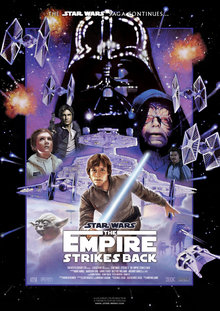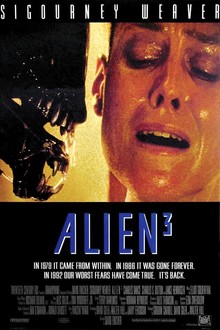Retrofitting, And When It Doesn’t Work
 I don’t know if I’ve mentioned it before, but I’m married to a builder. Over the years I’ve observed (judging by the level of bitching) that it’s easier to start from scratch than it is to retrofit. Still, there’s a way to do it well, and a way to screw it up.
I don’t know if I’ve mentioned it before, but I’m married to a builder. Over the years I’ve observed (judging by the level of bitching) that it’s easier to start from scratch than it is to retrofit. Still, there’s a way to do it well, and a way to screw it up.
I think that’s true of writing as well. I’ve already talked about sequels, and how genre writers in particular have to be careful to remember the details of the worlds they’ve created previously. However, when an author who’s twenty years into a series gets the colour of someone’s eyes wrong, or forgets that they’ve once said their protagonist was an only child, you have to figure that’s an honest mistake, and cut the writer some slack.
But what about conscious, deliberate changes? I’m not talking about reboots, or spin offs. They have their own problems. And I’m not talking about the changes that naturally occur when you’re adapting one media to another. No, I’m talking about sequels where the writer/creator seems to think that no one will remember what’s already been established. You know, where the writer/creator says “Oh yeah, I know I said she was an only child, but now I need her to have a brother, so she does.”
Yes, I’m talking to you, George Lucas.
 To be fair, one of the toughest tasks a writer – or screenwriter – has to face is being asked to write a follow-up to a book or movie when they think they’ve told the whole story, and aren’t prepared to be asked for more. I don’t know if that was true of Star Wars: A New Hope, maybe someone can tell me.
To be fair, one of the toughest tasks a writer – or screenwriter – has to face is being asked to write a follow-up to a book or movie when they think they’ve told the whole story, and aren’t prepared to be asked for more. I don’t know if that was true of Star Wars: A New Hope, maybe someone can tell me.
Taking an example from the Fantasy and SF novel, we have Roger Zelazny’s follow ups to Nine Princes in Amber. I don’t think there would be much dispute that the later books don’t hold up to the original, but.as far as I can remember (it’s been a while) Zelazny never had to cover up, or explain away, or pretend something didn’t happen in order to get the next part of the story out. In the way that, say, George Lucas has done more than once.
I’m sure we all have our own favourite teeth-grinding examples, but here are mine:
Darth Vader is Luke’s father. As a plot point per se, it’s great. On the principle that the worst possible thing for your character is the thing that should happen next, I can understand the impulse to do this. But it should have been mastered. In doing this, Obi Wan is made into a liar by omission, a prevaricator, a manipulator, and what does that say about the Jedi?
 And speaking of the Force, there’s that whole Midi-chorian issue, that’s been covered by plenty of people before me, so I don’t have to go into detail here.
And speaking of the Force, there’s that whole Midi-chorian issue, that’s been covered by plenty of people before me, so I don’t have to go into detail here.
This kind of sloppy back-peddling is disrespectful of your own work, and of your audience. If nothing else, it serves as a warning to the rest of us to have a good overall grip on the ideas that form the background of our worlds so that we can cut down on contradictory silliness.
 And lest you think Lucas is only guilty party here, let me have a quick look at the Alien franchise, specifically the first three movies. Ridley Scott is solely responsible for the first one, and a finer SF-horror film would be difficult to find. James Cameron built on the premise of the first movie to create an action adventure film that was respectful of the ideas, concepts and characterizations of the original. Sure, there’s a totally different tone, but he kept the complex imaginary world intact. David Fincher, on the other hand, along with a crowd of screenwriters, jettisoned 90% of what the first and second film established (including dumping characters sloppily) to make a sexist, clichéd prison film, where the prison actually wasn’t needed. Think about it, the conflict between Ripley and the Alien could have happened anywhere.
And lest you think Lucas is only guilty party here, let me have a quick look at the Alien franchise, specifically the first three movies. Ridley Scott is solely responsible for the first one, and a finer SF-horror film would be difficult to find. James Cameron built on the premise of the first movie to create an action adventure film that was respectful of the ideas, concepts and characterizations of the original. Sure, there’s a totally different tone, but he kept the complex imaginary world intact. David Fincher, on the other hand, along with a crowd of screenwriters, jettisoned 90% of what the first and second film established (including dumping characters sloppily) to make a sexist, clichéd prison film, where the prison actually wasn’t needed. Think about it, the conflict between Ripley and the Alien could have happened anywhere.
And on a final note, Rogue One is a much better prequel to the Star Wars films than anything else we have available.
Violette Malan is the author of the Dhulyn and Parno series of sword and sorcery adventures (now available in omnibus editions), as well as the Mirror Lands series of primary world fantasies. As VM Escalada, she writes the upcoming Faraman Prophecy series. Find her on Facebook and follow her on Twitter @VioletteMalan.
Yet Rogue One also blatantly ignores what has already come before. The whole dialogue between Vader and the captain of the boarded corvette makes no sense anymore if you take Rogue One by its words.
Vader asks about the transmission the ship received and doesn’t buy the story that the ship is on a diplomatic mission. He was there when the data was handed over in person on a disk and not transmitted by radio. And the claim that the ship is on a diplomatic mission is ludicrous with the star destroyer being in pursuit since the battle in which both ships were fighting.
To bad they never made a second Matrix movie,and not a fourth Star Wars movie either.
It’s interesting that Lucas didn’t script or direct The Empire Strikes Back or Return of the Jedi, but they’re considered the best films in the Star Wars saga.
> To bad they never made a second Matrix movie,and not a fourth Star Wars movie either.
Martin,
Uh…. they did?
The Matrix Reloaded (2003)
The Matrix Revolutions (2003)
I don’t blame you for forgetting them, though…. The Matrix was my favorite film of the 90s, but I was so annoyed by The Matrix Reloaded that I didn’t even bother to see The Matrix Revolutions.
My guess is that the first Matrix movie was a riff on the monomyth – and nothing more. The Wachowskis had a concept and they hung it from a well-known narrative arc. From that point on, they were fresh out of ideas.
I’ve never seen Star Wars: Episodes 1 – 3 (nor have I seen the original trilogy since I saw it as a teenager) but (given that it was an important feature of the original) I wonder if Lucas tried to employ the monomyth in this sequence as well, albeit in relation to Vader?
Just wondering.
@Aonghus: Lucas was consciously influenced by and deliberately drew on Joseph Campbell’s conception of the Hero’s Journey myth, so yes.
Lucas didn’t intend for Vader to be Luke’s father in the first movie. That’s been pretty well established.
Starting with ESB, Lucas pretty much made a career of making Obi-Wan and Yoda liars. Just sad.
Here’s an interesting observation: in Episode IV, when Obi-Wan is telling about Darth Vader “killing” Luke’s father, he clearly pauses, looks away from the camera, and swallows. His body language screams that he is lying. I don’t know exactly what Lucas has publicly said on the matter, but clearly Alec Guiness knew something was up when he filmed that scene.
On the other hand, the Luke and Leia as twins idea does feel tacked on to me. I strongly suspect that George Lucas and Lawrence Kasdan came up with that as a way to deal with the fairy tale cliche that the hero always gets the girl(and don’t get me started on that sexist old cliche!!! Argh!!!). Since clearly it was Han, not Luke who would wind up with Princess Leia, they had to come up with an explanation for why it was Han not Luke who got the girl.
“To be fair, one of the toughest tasks a writer – or screenwriter – has to face is being asked to write a follow-up to a book or movie when they think they’ve told the whole story, and aren’t prepared to be asked for more. I don’t know if that was true of Star Wars: A New Hope, maybe someone can tell me.”
As I recall from forty years ago, George Lucas always said that he envisioned a saga of nine Star Wars movies, to be released in clusters of three. He said this at the time the very first movie was released, and I’m increasingly baffled by the fact that no one seems to remember or know this.
Or am I wrong? I’m not speaking as a particular fan of the series. I did sit through THE PHANTOM MENACE, but I can remember almost nothing about it, and after that the only one I saw was THE FORCE AWAKENS. So I don’t speak with authority.
“Taking an example from the Fantasy and SF novel, we have Roger Zelazny’s follow ups to Nine Princes in Amber. I don’t think there would be much dispute that the later books don’t hold up to the original, but.as far as I can remember (it’s been a while) Zelazny never had to cover up, or explain away, or pretend something didn’t happen in order to get the next part of the story out.”
Nine Princes in Amber was a terribly mediocre book that betrayed a blatant Moorcockian influence. I was ready to give up the series after that one but luckily I did not because The Guns of Avalon, The Sign of the Unicorn and The Hand of Oberon were amazing and crammed with original ideas. Court of Chaos was a fitting conclusion overall. I have not read the second series, though.
To Martin: I’m not sure I agree with you, though I might, if I get a chance to see Rogue One again. I know that I felt all right about this scene, and so did the people with me, but in view of your observations, I’d like a chance to make my own comparison to be sure. Thanks for bringing it to my attention.
And, as others have noted here, there is a second Matrix movie.
To CMR: it is interesting, isn’t it? I cited him as the “creator” here, as he’s given the “story by” credit. His worst sins are most evident in the three prequels, however.
To Aonghus: I know many people who would agree with your suggestion, as they think Lucas never had any original ideas, and was therefore always employing something from someone else.
However, as someone who believes there hasn’t been anything “original” since Homer (and he stole stuff)I don’t find lack of originality in and of itself to be a significant flaw in any work. Many people have taken old ideas and combined or used them in novel ways. Not Lucas, but others.
BTW, did you know that “original” in the sense we now use it was a concept invented in the 18th century?
To Nick: you got that right.
To Deuce: Thanks for the confirmation. I thought this was the case, but wasn’t absolutely certain.
To Amy: it’s been a while since I’ve seen Ep IV, so I’d like to check this myself. On the other hand, since Lucas messed with other elements of Ep IV (who shot first?)I’d also need to know whether you’re talking about the “original” as first shown in theatres.
Absolutely agree with your observation re; the twins idea. At the time of first watching, it wasn’t obvious to me from the getgo that Han would get the girl. In fact, at the end of Ep IV, I took it for granted that Luke was going to get the girl, so there was much eye-rolling when it became evident that wasn’t the case.
To dolphintornsea: I could be wrong (I was young and paying more attention to other things at the time of the first release), but I don’t remember Lucas claiming at that time that he intended to make 9 movies. He may have said so afterwards, but I don’t think he was saying so in 1977. I know that “Star Wars” wasn’t called “Episode IV” until quite a bit afterward.
To MorganMax: Obviously I don’t agree with your assessment, except in that Zelazny was much influenced by Moorcock, practically all the time. A lot of the “new wave” writers were. Still, my real point was that he respected the premise and mise en scene that he’d created for the first book in the follow up books.
Thanks to everyone for their comments and ideas, you guys are great.
Violette, here’s a quote from Mark Hamill (unfortunately not from a well authenticated source:
In a 2004 interview, Hamill said: “You know, when I first did this, it was four trilogies. 12 movies! And out on the desert, any time between setups…lots of free time. And George was talking about this whole thing. I said, ‘Why are you starting with IV, V and VI? It’s crazy.’ [Imitating Lucas grumble,] ‘It’s the most commercial section of the movie.’
This is from http://scifi.stackexchange.com/questions/1207/werent-there-originally-going-to-be-nine-star-wars-films
And on another page:
“As the saga developed after the success of A New Hope, these plans began to change. Lucas stated in 1979 that there would be three trilogies, plans he continued to talk about into the 1980s.”
That’s from http://starwars.wikia.com/wiki/Sequel_trilogy
I didn’t know that, Violette!
I should add that I don’t think Lucas was showing a lack of originality (my understanding is that he pretty much pioneered using the monomyth as a template in film): just wondering if he used the monomyth to depict the villain’s narrative arc as well – ie, Vader – as this would be kind of cool, even if something got lost in translation.
To dophintornsea: I find these sources acceptable, at least for the basis of discussion. Like Lawyers, we can “stipulate.” Clearly Lucas’s “story by” credit for ESB and ROJ makes sense in this context. However, he equally clearly didn’t plan things out very well, as demonstrated by all the things we’ve all been critical of.
To Aonghus, that’s a very interesting notion with regard to the villain’s narrative arc; something well worth looking into.